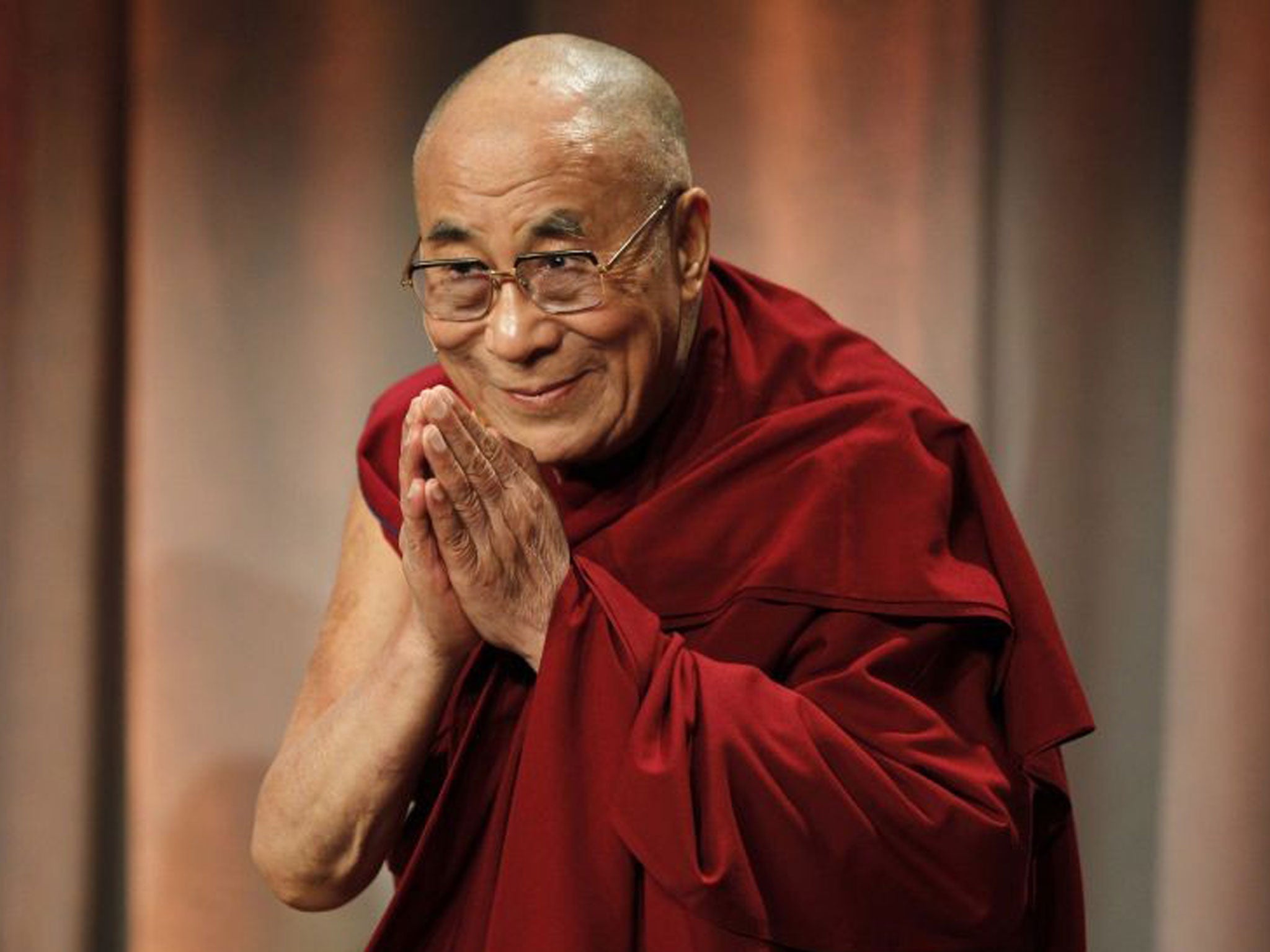Tea and sympathy for the idea of religion as a force for peace
India has 1,000-year-old faiths and a history as a non-violent country, the Dalai Lama told me


It’s easy to be cynical these days. Easy, when representatives of India’s nine largest faiths gather in a Delhi hotel, to shrug. We’ve all seen these calls for peace and tolerance before, says that dark, sceptical voice, but what good does it do?
One person who most certainly does not appear cynical is the man who brought them all together – Bahaists, Buddhists, Christians, Hindus, Jains, Jews, Muslims, Sikhs and Zoroastrians alike – the Dalai Lama. At 79, the Tibetan Buddhist leader may these days walk a little more stiffly, but his mind, and his humour, are as supple as ever.
“Followers of all spiritual traditions try in their own way to overcome the suffering that afflicts beings in the world and bring about their happiness,” he told delegates. “However, it would be better if we worked together.”
The Tibetan leader said he had been trying to convene a gathering of different faiths since the early 1960s. Over the years, he had come to know more and more people, and his confidence had grown.
“Now I can convene a symposium because of these relationships,” he told me at an afternoon break for tea. “India has 1,000-year-old religions and a history as a non-violent country.”
The 14th Dalai Lama, whose given name is Tenzin Gyatso, has lived in India since 1959 when he fled Tibet amid a crackdown by China and established a government-in-exile in the hills at Dharamshala.
At the time he was a naïve, inexperienced leader, who believed the rest of the world would recognise Tibet as an independent nation. The US, UK and India all declined, though India gave refuge to hundreds of thousands of Tibetans.
Since then, the Dalai Lama has become used to such realpolitik. Convinced that his role as a political leader was actually hindering negotiations with China, he gave up that formal position in 2011. Since then he has continued to promote the cause of “meaningful autonomy” for the Tibetan people, rather than outright independence – his Middle Way approach.
He has also tried to prevent the authorities in Beijing from seizing on the issue of his succession as a way of creating splits. He has long believed one of the ways Beijing does this is by getting involved in the reincarnation selection process of senior Buddhist monks. This month he repeated his claim that he may not be reborn at all, a comment that sparked outrage from China. He had previously said his successor could be a woman, or even that Tibetans could hold a referendum to decide whether there should be a 15th Dalai Lama or not.
He said he started planning the peace conference two years ago and that it was not a reaction to any specific events. “Eventually I hope the Indian government will organise a national conference of religious leaders,” he said. “I think India is the only place, with all the world’s major religions, where they could come together.”
More than a decade ago, the Dalai Lama allowed some of his monks to collaborate with a US scientist, Richard Davidson, as part of an investigation into whether mediation could alter the physiology of the brain. The results were not conclusive.
But he believes, passionately, that meditation and what he called “Indian psychology” could improve society. “India should pay more attention to ancient knowledge. It should not be considered religion,” he enthused. “And these things should not be for the museum.”
Join our commenting forum
Join thought-provoking conversations, follow other Independent readers and see their replies
Comments
Bookmark popover
Removed from bookmarks